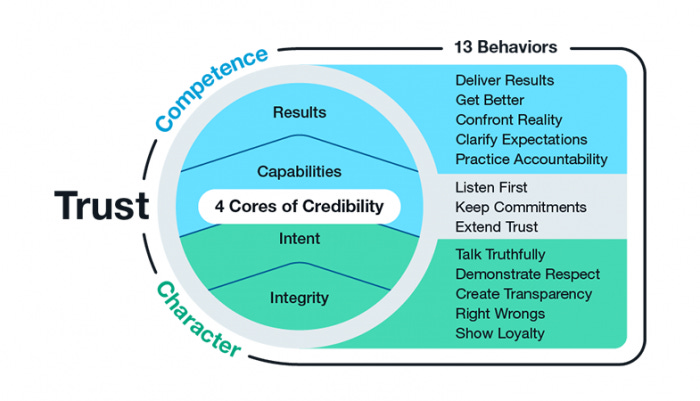“You can’t talk yourself out of a problem you’ve behaved yourself into."
— Stephen M.R. Covey
Trust is tricky. We all know it’s important, but it’s easy to forget just how fragile it really is. In work and life, trust isn’t a given—it’s earned. Yet, there’s a common trap we fall into: thinking that once we have a title, we automatically get trust and respect.
But here’s the reality check:
Trust doesn’t come with your business card. It comes with your actions.
The Myth of the Title
A title might get you a seat at the table, but it won’t keep you there. You might be a manager, director, or CEO, but if you think that title guarantees trust, you’re missing the point. Trust is like a bank account—every action you take is either a deposit or a withdrawal. And if you’re not careful, you could find yourself in the red before you know it.
Stephen M.R. Covey nails it when he says, “Simply put, trust means confidence. The opposite of trust—distrust—is suspicion.” The moment your actions don’t match up with expectations, trust begins to erode, and suspicion creeps in. And when suspicion takes hold, everything slows down, and the costs—both tangible and intangible—start to skyrocket. As Covey puts it, “Trust always affects two outcomes—speed and cost. When trust goes down, speed will also go down, and cost will go up.”
The Two Ingredients of Trust: Character and Competence
Let’s break it down.
Trust has two key ingredients: Character and Competence.
1. Character: The Foundation
Character is about integrity, honesty, and living your values. It’s about being the kind of person others can count on, no matter what. Consistency is key here—if people know what to expect from you, they’ll trust you.
But let’s be real: character alone won’t cut it.
2. Competence: The Multiplier
Competence is where the rubber meets the road. It’s your ability to get things done, deliver results, and prove that you know what you’re doing. It’s the “can you back it up?” part of trust. No matter how good your intentions are, if you’re not delivering, trust is going to tank. People need to see that you’re not just a nice person—you’re someone who can actually make things happen.
How to Build—and Keep—Trust
Understanding that trust is a mix of character and competence is step one.
But how do you keep that trust alive?
1. Be Consistent: Make sure your actions align with your words. Consistency builds character trust.
2. Deliver Results: Set goals, meet them, and prove your competence. Delivering results is the fastest way to build trust.
3. Seek Feedback: Don’t assume you know how you’re doing—ask. Seeking feedback shows you’re committed to growth.
4. Own Your Mistakes: When you mess up, admit it. Transparency and accountability are non-negotiable.
5. Invest in Relationships: Trust is reciprocal. Show that you trust others and invest in those relationships.
The Bottom Line
Trust isn’t automatic. It’s built, nurtured, and sustained through your actions. Titles might give you a starting point, but they won’t keep you there. Focus on character AND competence, and you’ll earn trust that lasts. If you’ve lost it in some ways, accept that—it happens to all of us—but fix it.
Remember, when trust is high, everything moves faster and costs less. But when trust is low, everything grinds to a halt. So, invest in trust—it’s the smartest move you’ll make.



Great framework here man! Going through some of your work and this brings some needed clarity